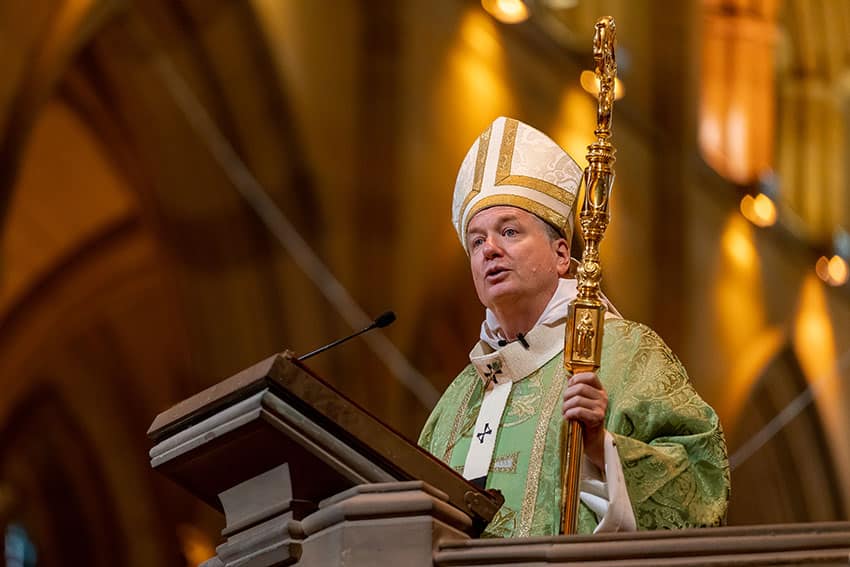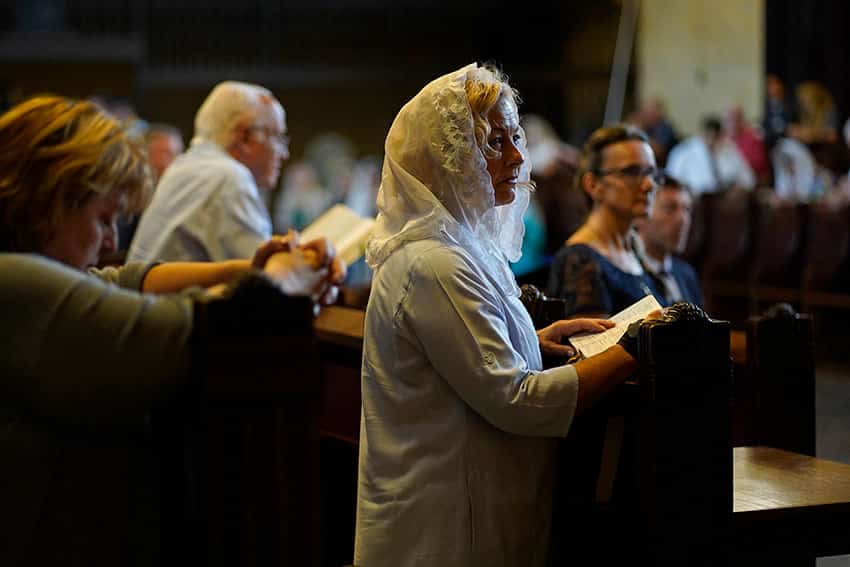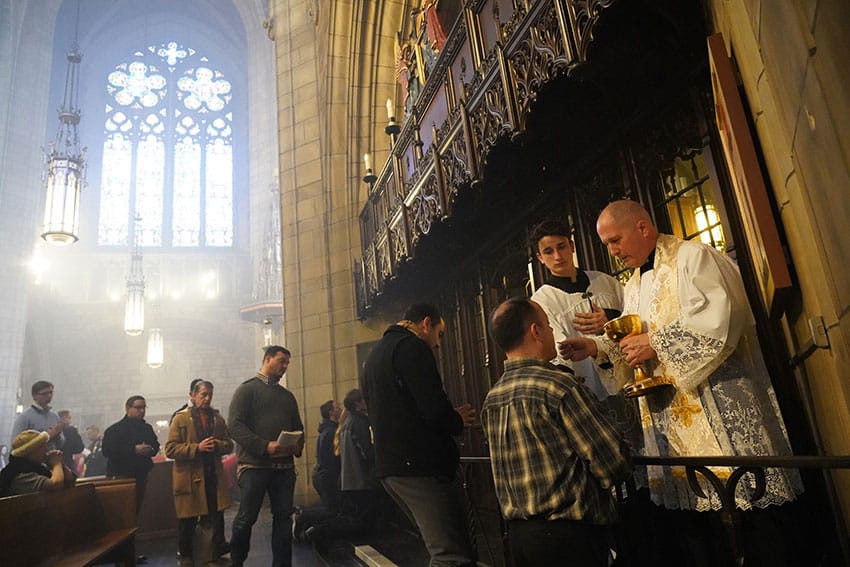
Archbishop Anthony Fisher OP has extended permission on a temporary basis to Latin Mass communities in the Archdiocese of Sydney to continue celebrating the old form of the Mass in Latin while he considers advice on the implementation of Pope Francis’s motu proprio.
Pope Francis shocked Latin Mass communities around the world on 16 July when he issued the motu proprio – a papal document issued on his authority as Pope – severely restricting celebrations of the Mass according to the Missal issued in 1962 by Pope St John XXIII.
Since Pope Benedict XVI’s Apostolic Letter Summorum Pontificum in 2007, the celebration of the Mass according to the 1962 Missal has been known as the Extraordinary Form of the Roman Rite.
Letter to clergy
In a letter to clergy dated 21 July, Archbishop Fisher said he was granting the permission while he takes advice on both the motu proprio, Traditionis Custodes (Guardians of the Tradition) and the accompanying letter from Pope Francis, which discussed the reasons for his decision to limit the celebration of the older form of the Mass.
“These two documents deserve careful theological, liturgical, pastoral and canonical study, as well as prayerful discernment and reception,” Archbishop Fisher said in the letter to clergy.
The Archbishop said he was granting permission “to those priests competent in offering Mass according to the 1962 Roman Missal to continue to do so, either privately or in those places that already have an Extraordinary Form Mass on their schedule, subject to COVID-19 restrictions and until further instructions are forthcoming from me”.

Several centres in Archdiocese
He asked clergy celebrating (or attending) Mass in the Extraordinary Form to advise their congregations that it would continue to be available in the Archdiocese “in response to the legitimate needs and desires of the faithful and within the appropriate canonical norms.”
He also asked priests “to consider carefully and respectfully the reasoning and instructions of the Holy Father, to help in promoting unity and good order in the Church, to continue to foster a fruitful devotion to the Mass, and to give priority to serving the pastoral needs of God’s people.”
There are several centres of the Extraordinary Form’s celebration in the Archdiocese, with it being celebrated on Sundays in St Mary’s Cathedral and in St Michael’s parish, Belfield. A personal parish, Maternal Heart of Mary in Lewisham is also a major centre of its celebration and is administered by priests of the Fraternity of St Peter, a congregation that celebrates the Extraordinary Form exclusively.

Liturgical diversity in the Church
Meanwhile, it is also celebrated at St Jerome’s Parish in Punchbowl on the last Saturday of the month and at St Dominic’s in Flemington every Saturday morning.
In his letter, Archbishop Fisher pointed out that there are 24 Catholic churches throughout the world in full communion with the Pope; between them, they celebrate six different liturgical traditions.
In the Latin Rite, which makes up the overwhelming number of Catholics at a global level, there are several liturgical traditions, including that of the Ordinariate created by Pope Benedict XVI for former Anglicans and which celebrates a liturgy preserving much of the distinctive Anglican heritage. A number of major religious orders also preserve unique liturgical traditions, which are still used on occasion, he said.
“So, while we share one rite, Western Catholics are also ritually diverse,” he said.
A challenge for the Plenary Council
Meanwhile, “the sacrifice of the Mass is a miracle celebrated according to any of these rites: a “sacred banquet” and “wondrous sacrament”, in which Christ becomes really present, by which Christ is received in Holy Communion, at which we engage in our highest form of worship, and through which we have our most intimate experience of God in this life,” Archbishop Fisher wrote.
He said a key challenge facing the upcoming Plenary Council of Australia would “surely be how to better catechise people about the real presence, foster Eucharistic devotion and ensure widespread availability of the Mass and Holy Communion.”
The Archbishop also said that the Mass is a celebration of communion in another sense, “the unity of faith and life between Catholic Christians and with God and His saints.
“The Liturgy must never be politicised or weaponised as an ideological tool by anyone, whatever their liturgical preferences: that would be to factionalise the Church and undermine communion in this sense,” he wrote.
Related
